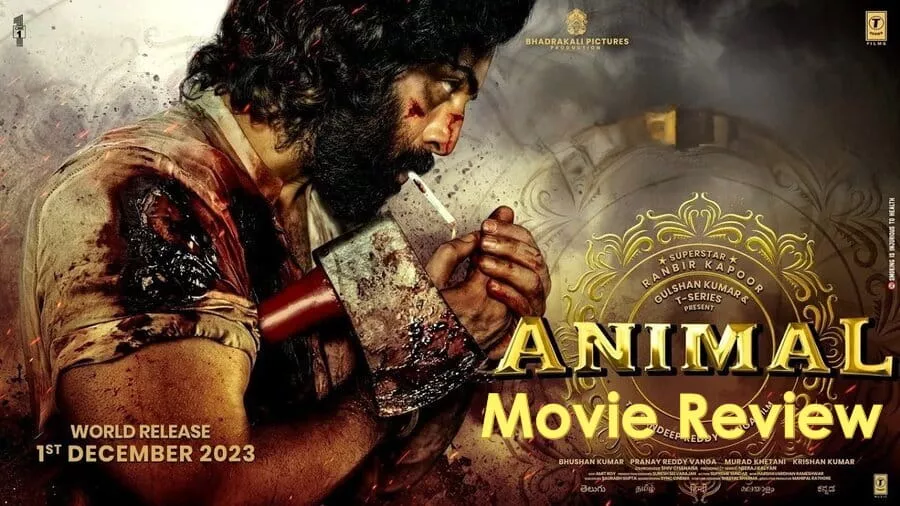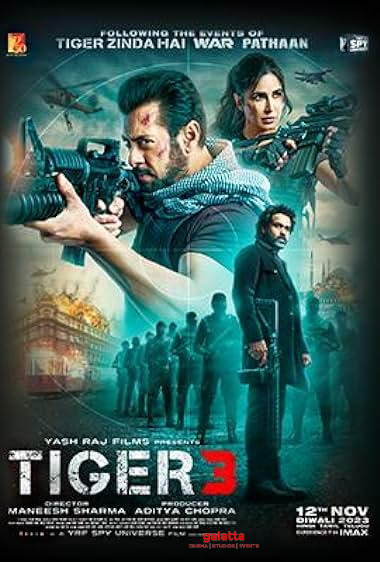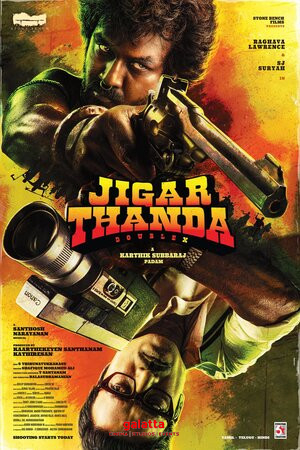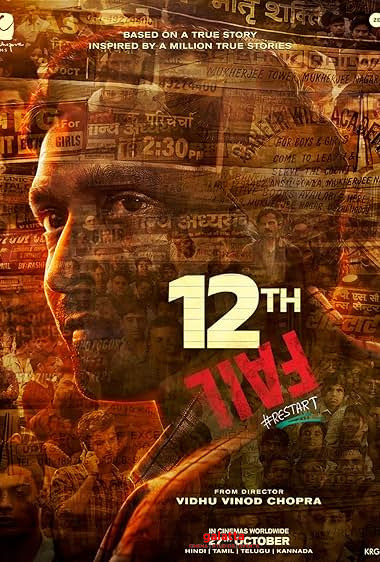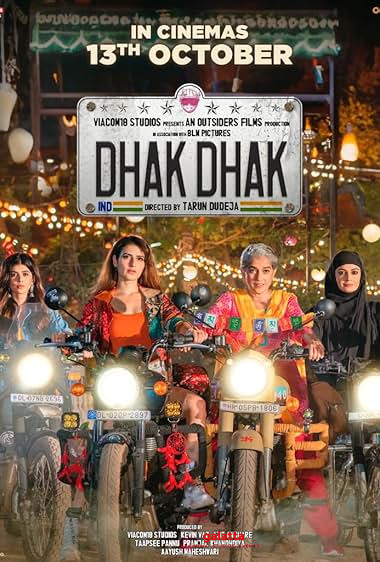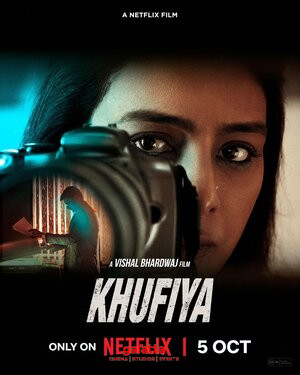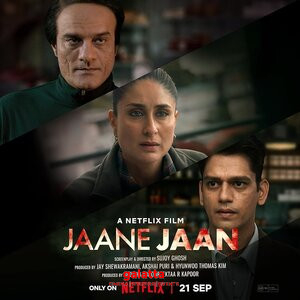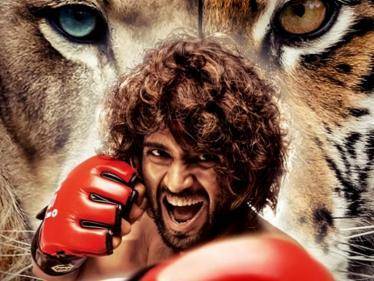Animal Movie Cast & Crew
Sandeep Reddy Vanga’s Animal plays like Subhash Ghai’s version of The Godfather – and I mean this in a mostly good way. (I’ll add that to see the film this way, you have to be – like me – a lover of pulp and excess.) In the trashy Mario Puzo novel and the classy Coppola adaptation that followed, a son becomes a criminal because of an attack on his father. But what if there was a twist! What if the son already had psychopathic, criminal tendencies! What if he was already a… khalnayak! What if at least some of these criminal tendencies stemmed from the father being distant, which caused an almost pathological longing for daddy-love, which then manifested itself as territorial behaviour! What if the son is essentially telling the world, “If I cannot have a piece of my father, then neither can anyone else, not even the ones who want to kill him”!
I use the word “territorial” deliberately. Ranbir Kapoor – who, as Vijay, gives everything he’s got – is the animal of the title, and he sees his father as his… “territory”. A superbly in-form (and in tune with the overheated material) Anil Kapoor plays the father, Balbir Singh. But apart from a few overheated lines, he is reduced to the weakened Don Corleone from The Godfather: a series of pained, pathetic looks at what his son has become. Sandeep recreates many moments from The Godfather, like a car explosion, or the killing of a brother-in-law, or the long opening set piece set during a (birthday) celebration, or the search for the people who attacked the father. And to this, he adds a gleeful pulp sensibility we never saw in Arjun Reddy. The sensational pre-interval fight combines men in “animal” masks, a Kabir doha, and a cheeky made-in-India reference, thanks to an automatic firing machine that acts like the biggest phallus in this movie that’s essentially about overheated men waving their dicks around.
At times, Animal plays like a dark comedy. Think of the cheerfully vulgar joke about an “animal” in the opening scene, which involves another phallic object: a sword! The anecdote tells us that we are what we are, and our toxic animal nature cannot be civilised or tamed by love or any other such bullshit. There are several laugh-out-loud moments, like the echo of a joke involving pubic hair, or the overhead shot of two fighting men that resembles two children fighting in school, or the reveal of the Bobby Deol character occurring as Vijay is finally using sign language after saying he does not want to use sign language. (There is a connection.) If you have “good taste”, do not go near this movie! You may feel like the critic Rex Reed did after watching Brian de Palma’s Scarface: he called it a pointless bloodbath that aimed only to disgust, sicken, and horrify the audience with a rampage of violence, bloodshed, and carnage.
It is true that some of this criticism can be applied to Sandeep’s movie. The rampage of violence does get exhausting after a point. After you’ve been through the pre-interval bloodbath, more blood is hardly going to have the same impact. And the second half does lose steam, because it turns into a more conventional “revenge story”, and the psychological aspects get lost amidst all the bloodletting. But where the writer-director scores is in throwing in so many unconventional things into the mix that you can’t tear your eyes away from the screen. There are any number of ways a mole can enter an organisation, but you will never guess the way this scenario occurs in Animal. This requires some truly outrageous imagination that truly thinks larger than life. This quality is the film’s beating heart. That body double – what an idea! After a point, the Mahabharata peeks in, with a war between blood relations. There is even a grand yagna!
The women – Rashmika Mandanna as Vijay’s wife, Tripti Dimri as a lover – don”t get much to do. In Arjun Reddy, we followed the protagonist’s point of view throughout. So when the woman left his life, we never saw her until he met her again. (There were no cutaway scenes showing what was happening to her in parallel.) But that is not the case here. Animal is not written from that kind of subjective viewpoint. So we want more from Rashmika’s character than just slapping her husband around, which appears like Sandeep answering his Arjun Reddy critics. She does get a solid scene woven around her husband’s infidelity, but it goes on too long and it does not have the desired impact.
But think about the reference to her child-bearing hips. On the surface, it sounds crass, but that is an evolutionary way of choosing a woman for marriage in the “animal” kingdom. The meaning of the title never leaves the film. It is there in the lines, the behaviours… and even in a brand of underwear. (I told you this was a dark comedy.) The film breaks every storytelling rule. We learn of a killing, and then we learn of the reason behind the killing. This is not intended to create suspense (which is the usual reason), but to create shock, to keep us off-balance. The startling cuts (Sandeep is also the editor) also help. Even rhythm-wise, we are kept off-balance. You could ask if the film really needed so much. What, for instance, if they had edited out the scene with the priest saying Vijay’s days are numbered? But again, you go back to the first scene (in black-and-white) and see that Vijay lives to be 60. Everything is interconnected. There is a clean vision.
If there is a Hindu yagna, there is a Christian priest, we get Sikh relatives, and we also get a Muslim wedding. When the hero is almost down and out in a fight, he recalls his father’s words and that brings him back to life. This is a grand, all-inclusive masala world, but in a post-millennial way. Like in Khalnayak, the man with “villain” qualities is the “hero”, but unlike those earlier movies, the moral lines are blurred. Vijay is so lost in the wars in own head – as his wife tells him – that he doesn’t seem to have an end goal in mind. “Getting his father’s approval” may have been the original end goal, but after a while, he behaves like a pure animal, doing exactly what he wants to do, with none of the boundaries of “civilisation”. When his sister is teased, he lets loose a machine gun in school. He tells his wife he will never cheat on her, and then he does. Not even the sight of a pregnant woman whose water has just broken can soften him, any more than a lion is going to pity an infant gazelle. Prey is prey.
Like Arjun Reddy, Animal appears like a no-holds-barred, uncensored wallow inside the director’s head. Sandeep definitely seems to be putting bits of himself out there. If Arjun Reddy had a derogatory attitude towards a “fat girl”, Vijay’s father here yells that Vijay is “putting on weight like a pig”. Sandeep puts out his id. He puts out moments that other directors may be too embarrassed to show that they even think of, even for fictional purposes – like one where Vijay walks naked, or when he tells his wife not to remarry after his death, or when he tortures her by tugging and releasing her bra strap. The act leaves red marks on her back the way Vijay’s schoolteacher’s caning left a red mark on his palm. I can’t say I liked Animal in its entirety, but amidst so many filmmakers whose work seems either derivative or boring or award-seeking or critical-approval-seeking, this rawness is exhilarating. I think those of us who like these movies may do so because – at least for three hours – they bring out the animal in us that we keep caged at all other times.
